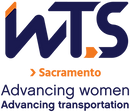Spring 2019 Professional Development
- WTS Sacramento
- May 23, 2019
- 3 min read
On Thursday, April 25th, Lisa Carpenter presented to WTS Sacramento on the Overwhelm Cycle and the Three Mistakes High Performing Professionals Make. After introductions, Lisa asked the group to answer one question, “What for?” Why are we doing what we are doing – is it for personal gain? For income? For a better future for our kids? Because we enjoy helping improve the world? Knowing the “what for” helps to put our job and situations in perspective.
The first mistake Lisa sees happening to professionals, is when we get stuck “in overwhelm.” Overwhelm is a cycle, which makes it predictable what will happen next. The cycle consists of (1) being in the zone, (2) escalation due to triggers, (3) feeling stuck in overwhelm, (4) recovery process, and (5) ramping up to get back into the zone. Getting into overwhelm can come from many different sources, the highest of these being: juggling work/life, job workload, people difficulties, politics or lack of job security. For getting into and out of overwhelm, it helps to be cognizant of what your triggers are and what interruptions you can use.
To interrupt getting into overwhelm, Lisa says to remember “energy” (N-R-G). Notice the trigger; find Release through sensory activity; then Generate into what you need to happen. A few sensory interrupts include: aromatherapy, listening to calming music, chewing gum, taking a walk, draw or sit outside. After overwhelm hits and you recover from it, some tips for getting back into the zone are: setting up boundaries on your time, request more support, or find a friend for support and encouragement.

The second mistake some professionals make is not having a Healthy Leader Plan (no “HeLP”). Lisa said that “the self-care required when you are a leader is higher than the self-care required when you are not a leader.” A HeLP is designed to support your desired future and to prepare for the future higher demands. These plans should be for your professional goals within 3-years. These “smaller wins” last longer and have a higher chance of success than big ones. There are five questions to a HeLP: (1) How do you define satisfaction and success? (2) What will you do daily to support your own well-being? (3) How do you identify areas where you do not feel present or empowered? Who (or what) is your conscience? (4) What will I be delegating as I take on higher demands? and (5) Who (or what) support will you have in place to ensure your success? After answering these questions, Lisa recommends choosing three actions that you can take to begin on your plan.
Lastly, another main mistake is not having a “winning formula.” Awareness + Action = Results. Having awareness but no action, Lisa said, is like noticing your belly button. It’s there, you have one, but there’s nothing to do. Action without awareness is stumbling through your days without future plans or being conscious of what’s happening around you. Having both will create results. When looking at your awareness, ask: In what area do I need to improve my awareness? What will I do to improve it? For taking action, ask: What will I do to help support my well-being and my HeLP?
Lisa mentioned that it is important to have an accountability partner, someone you trust who will be honest with you and help you achieve your goals. It is easier to succeed with the right support.
Thank you Lisa for an interesting and interactive presentation!
